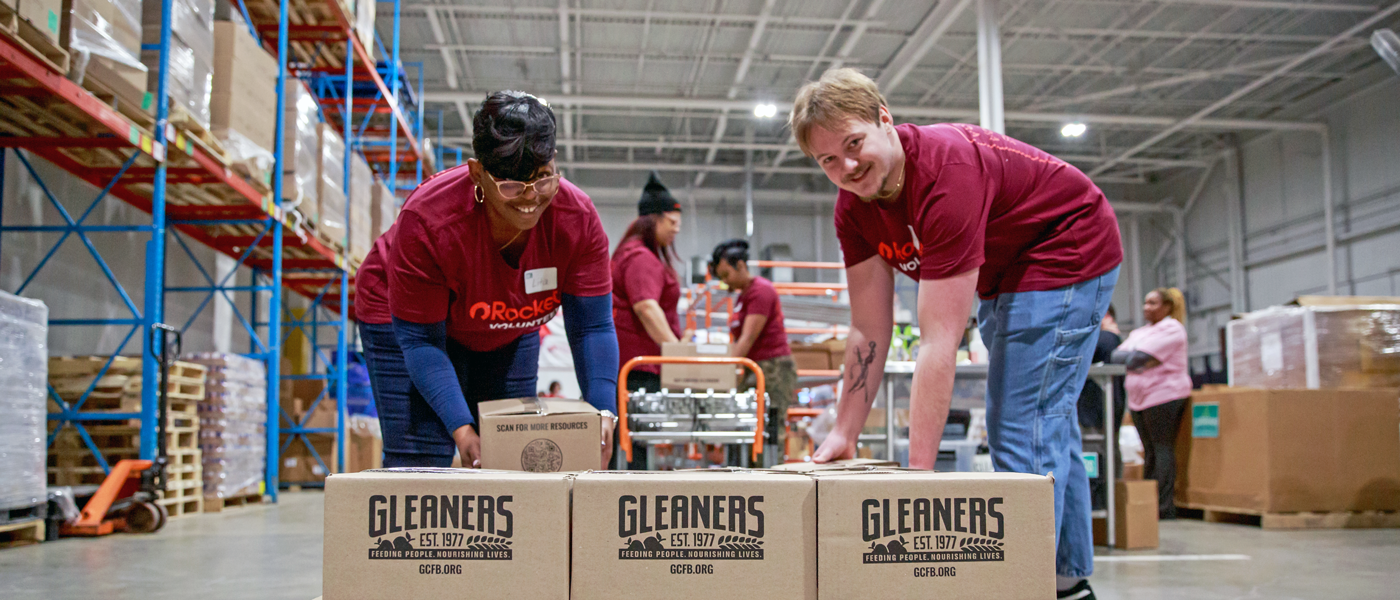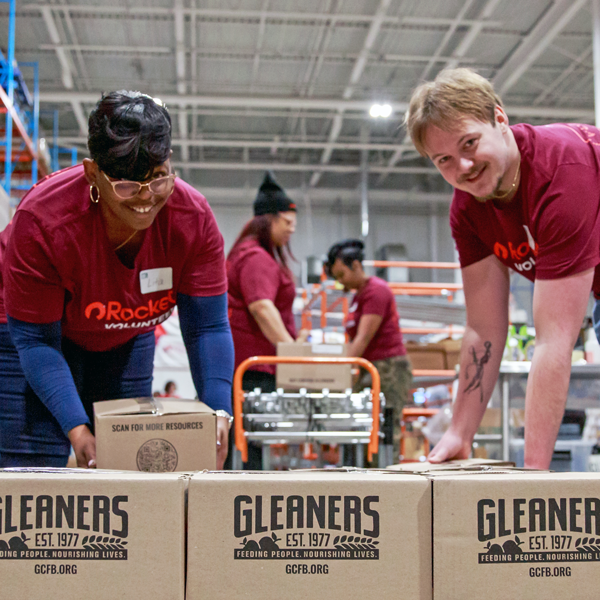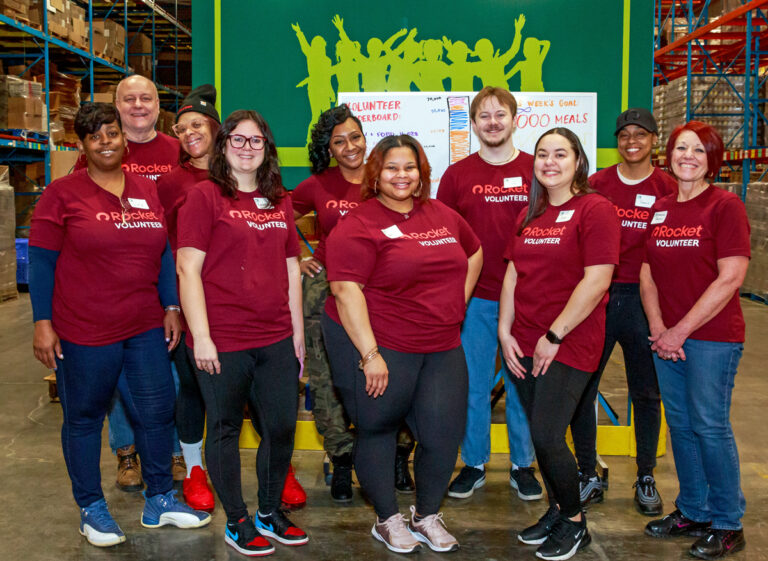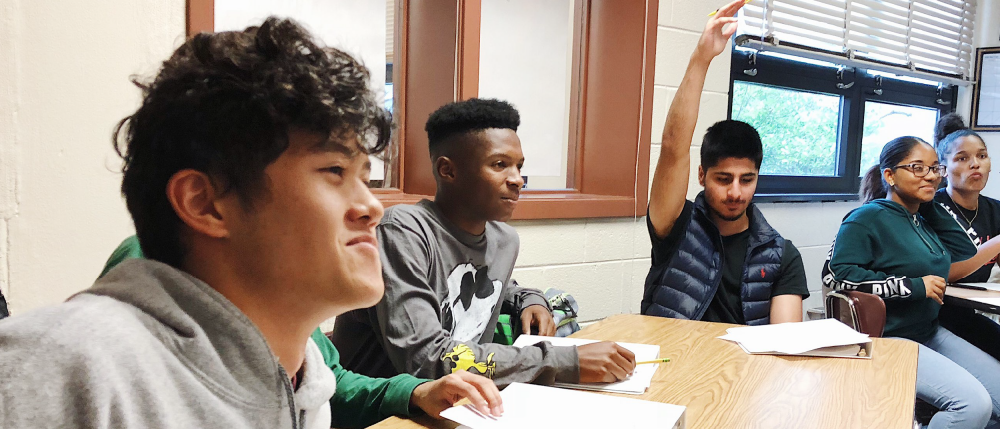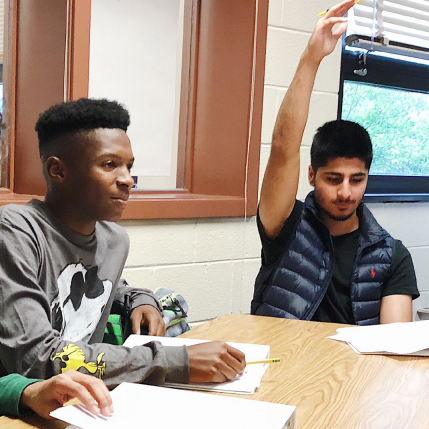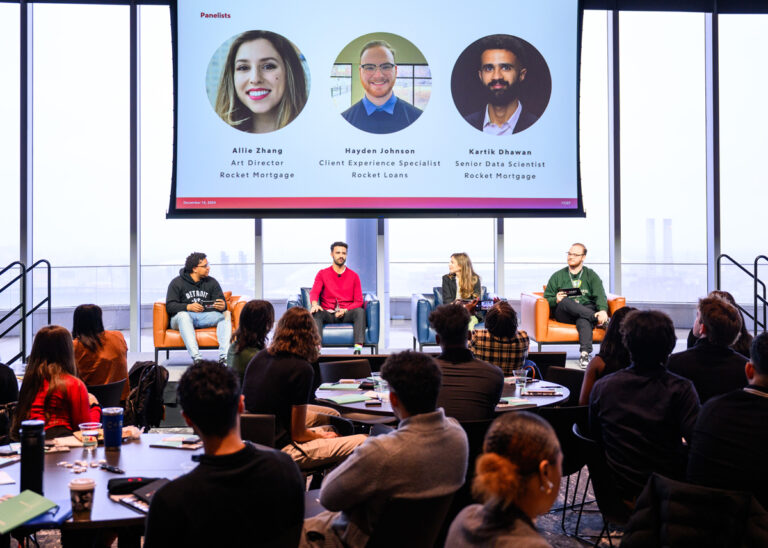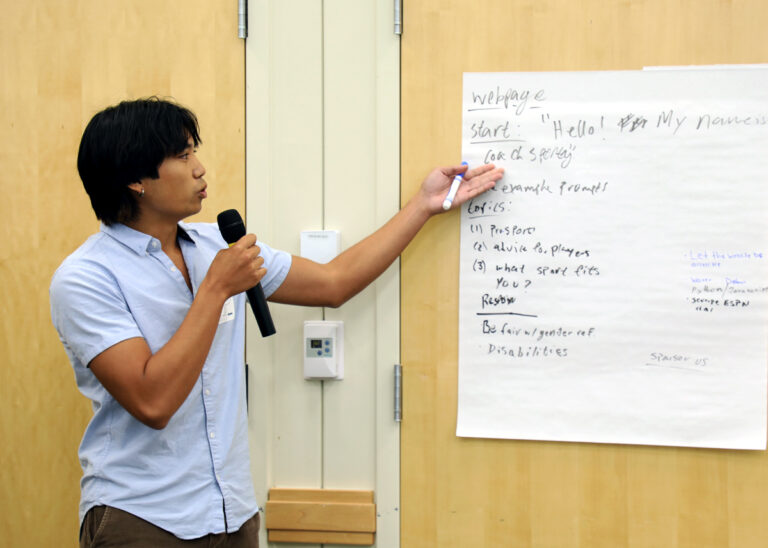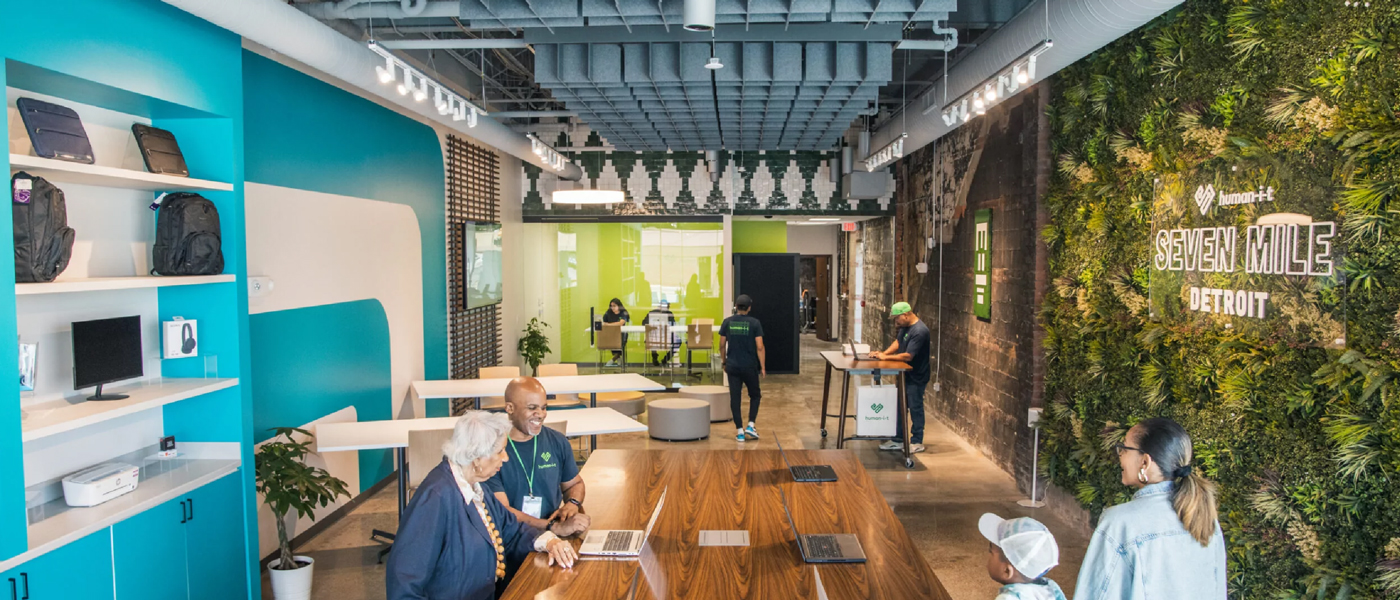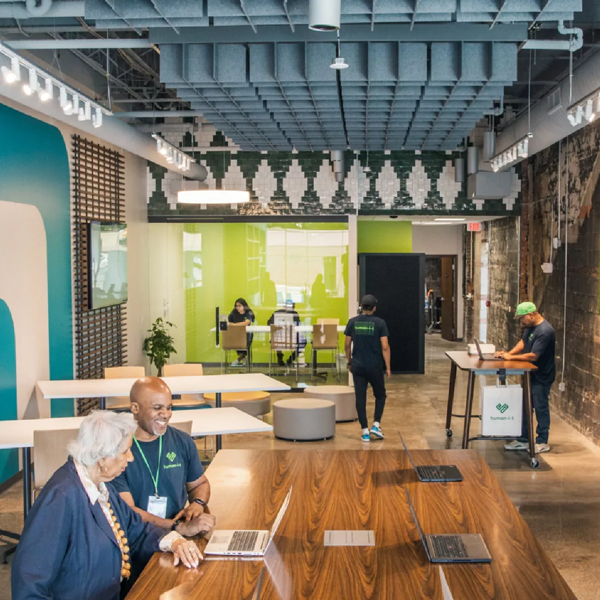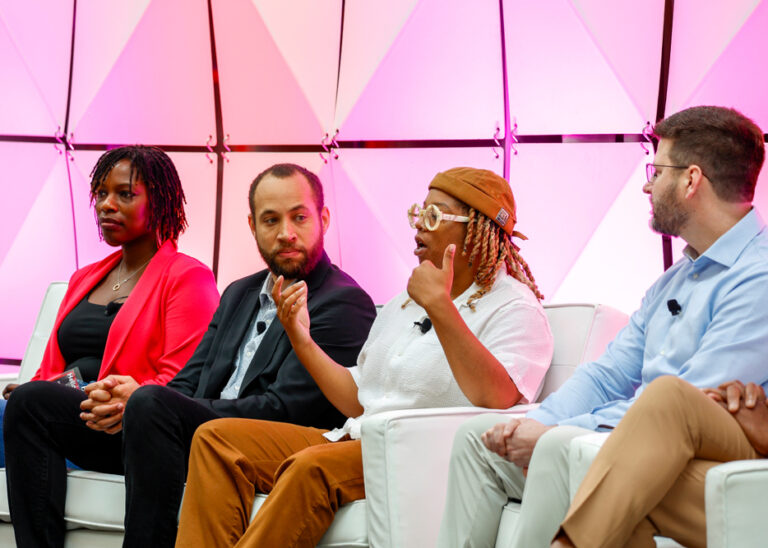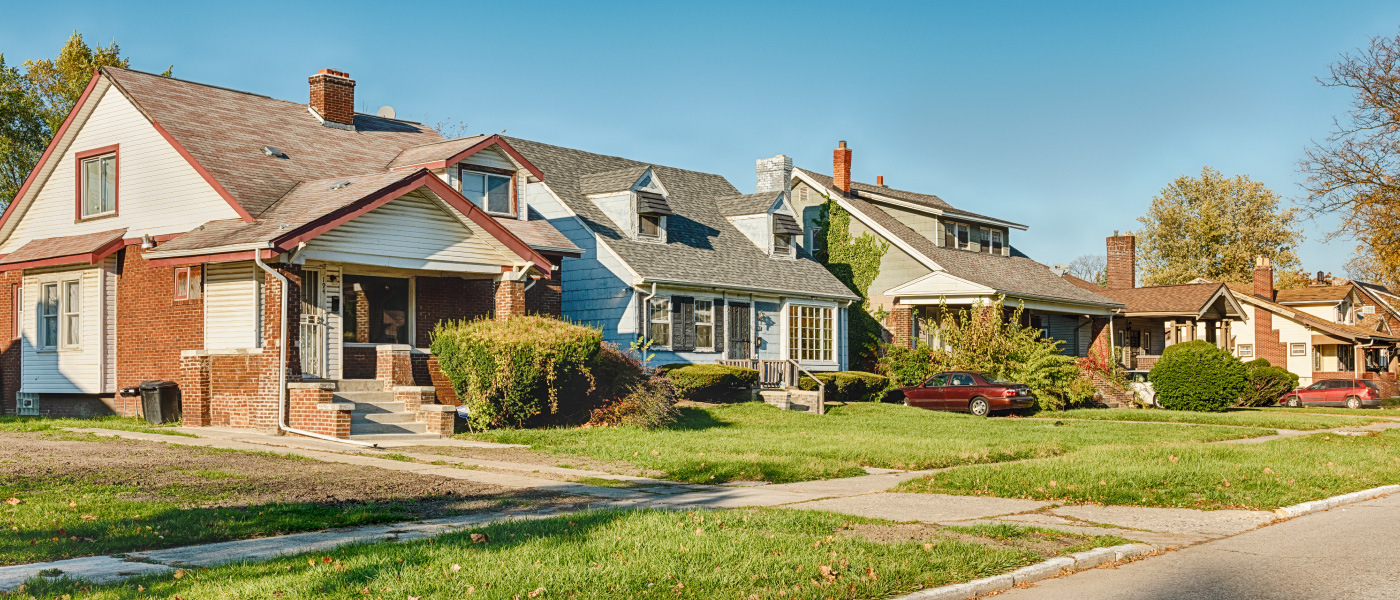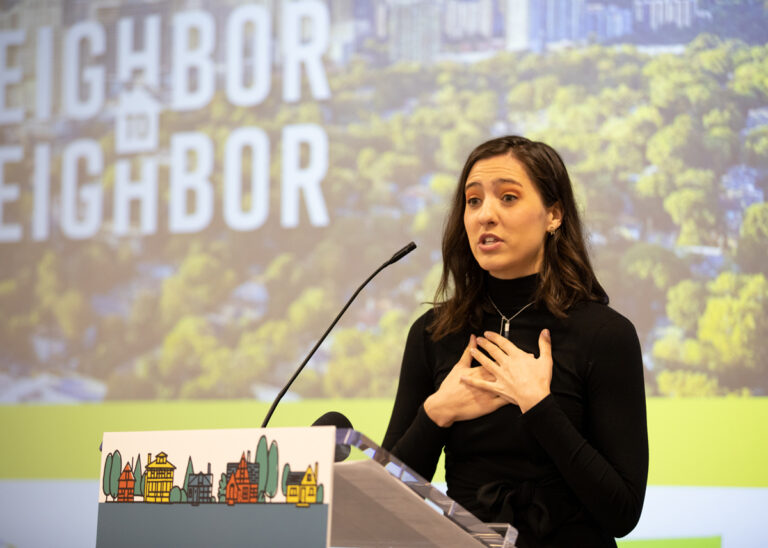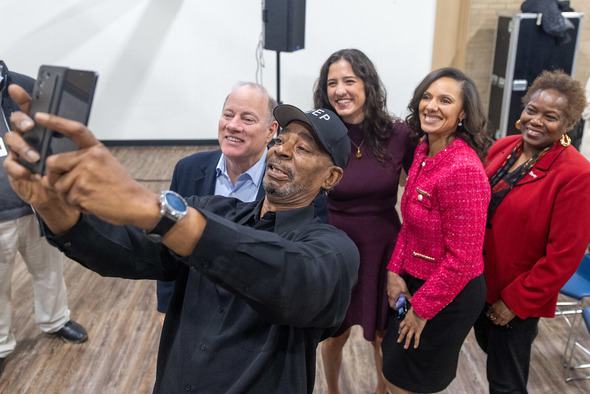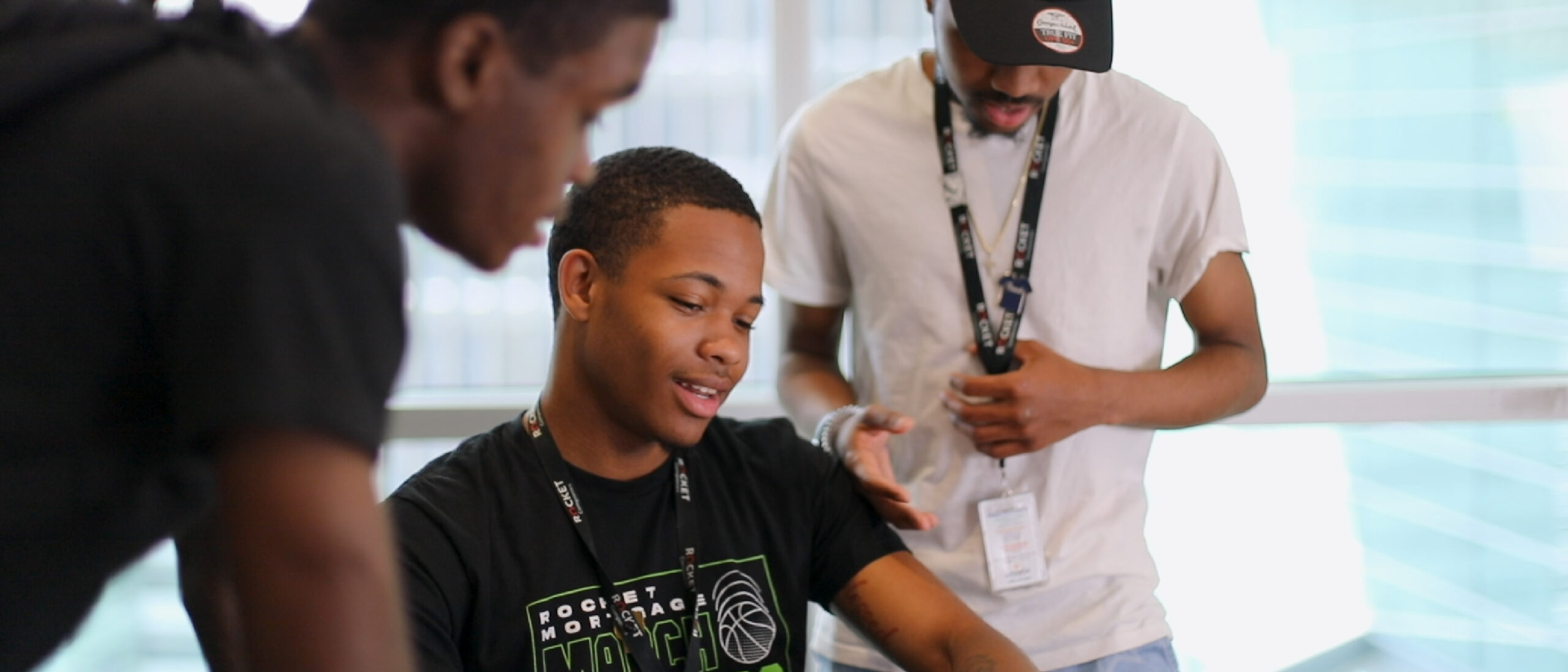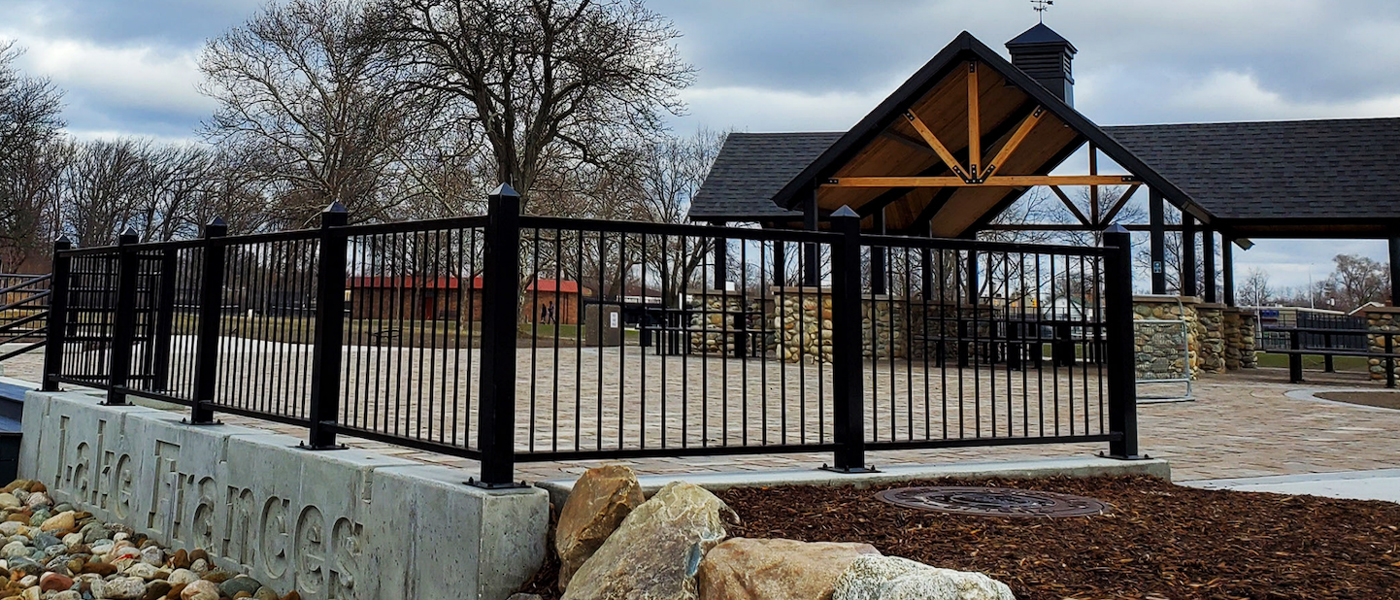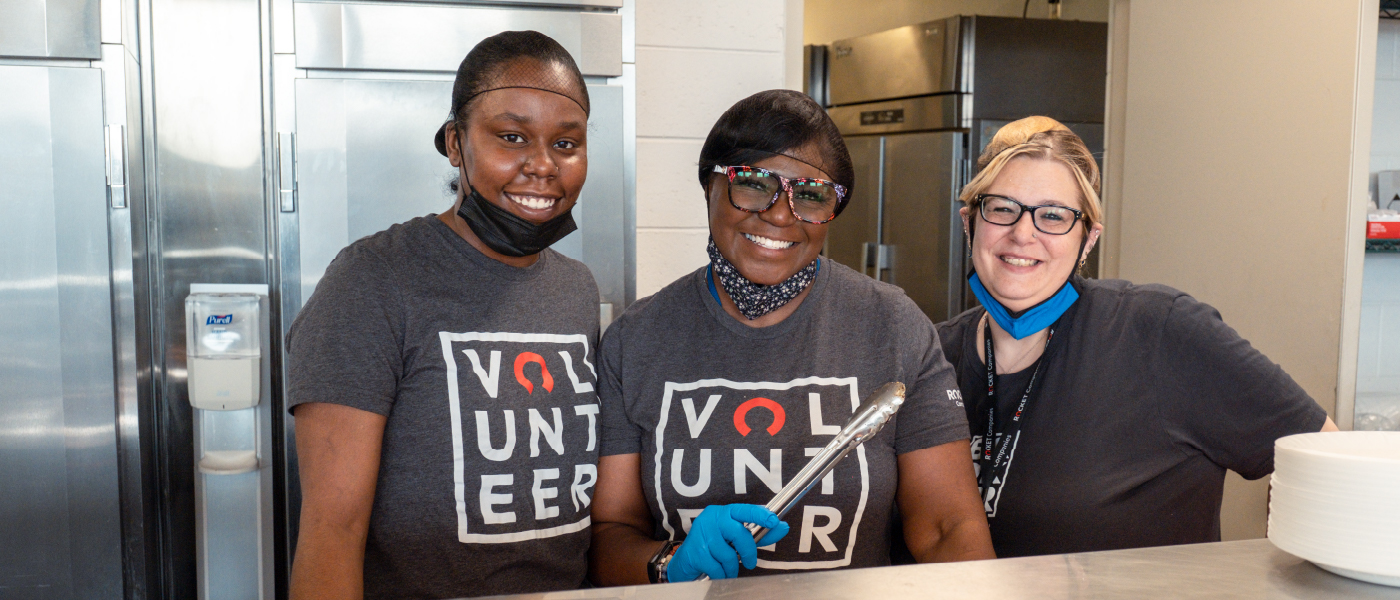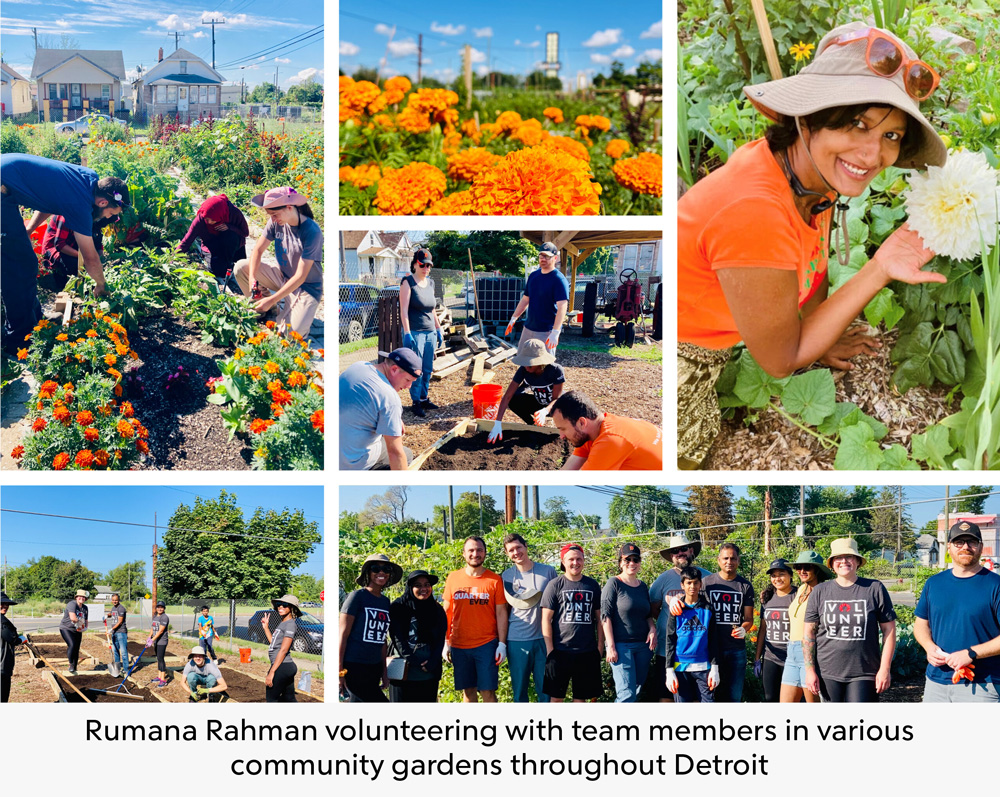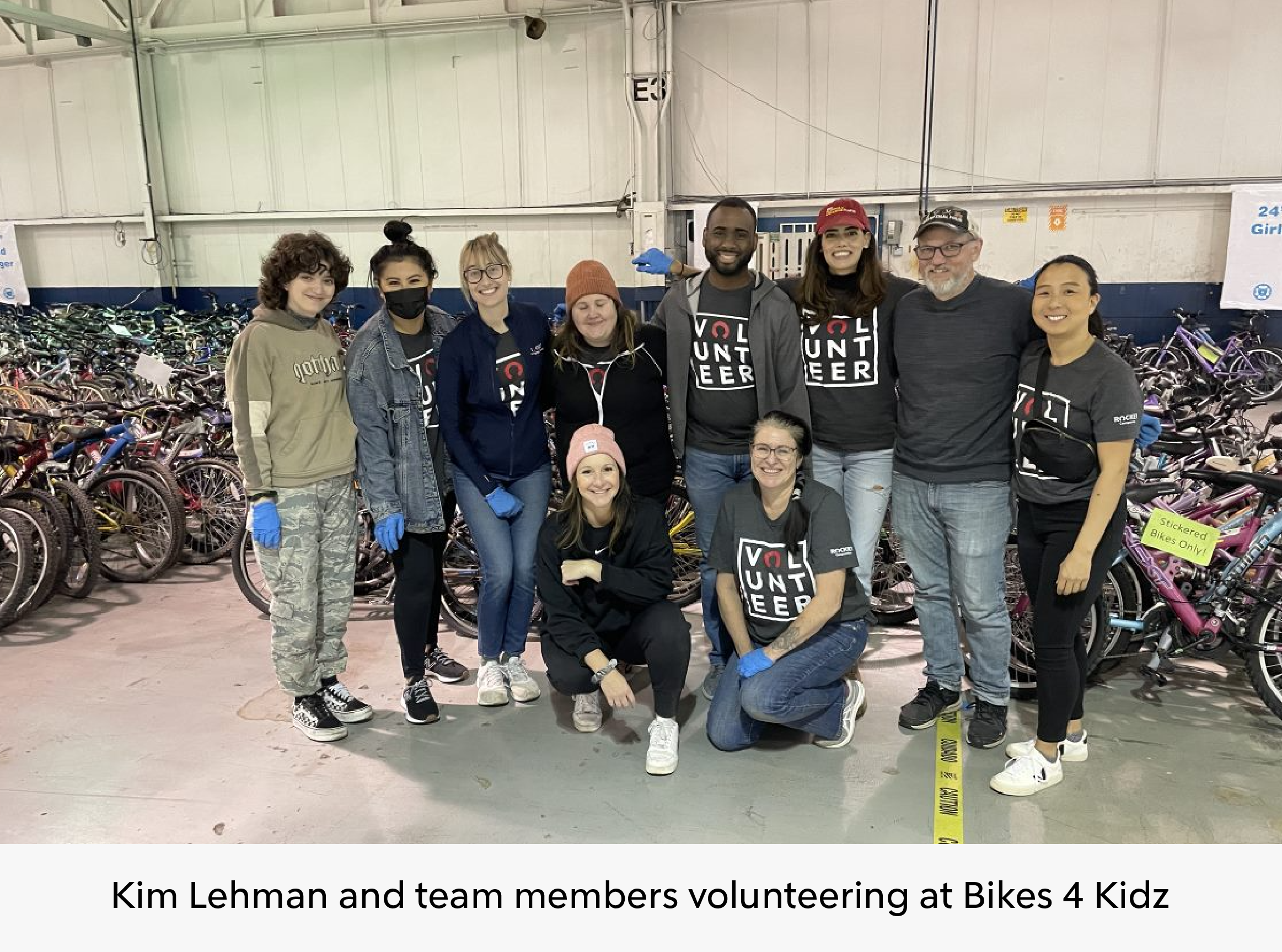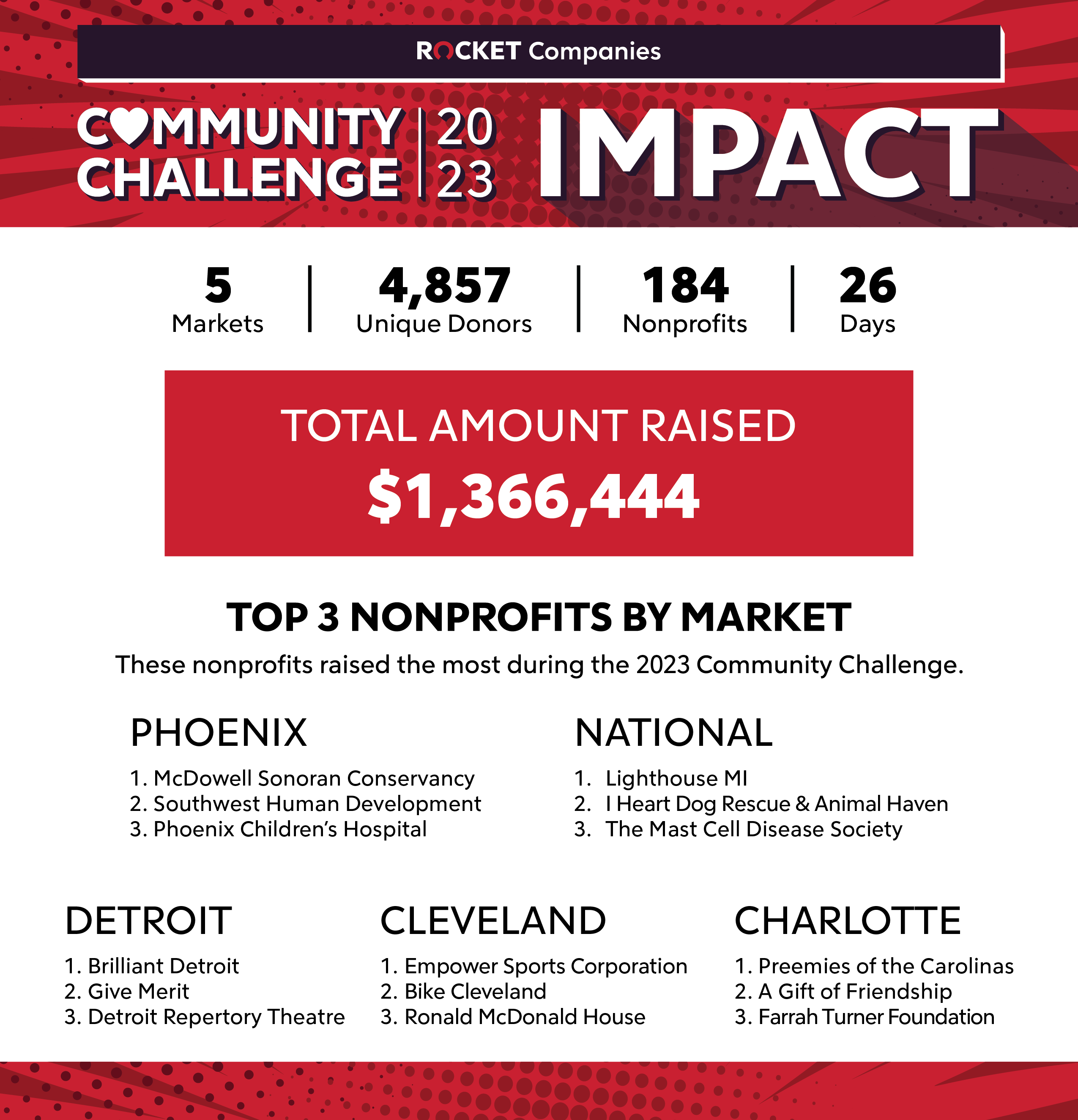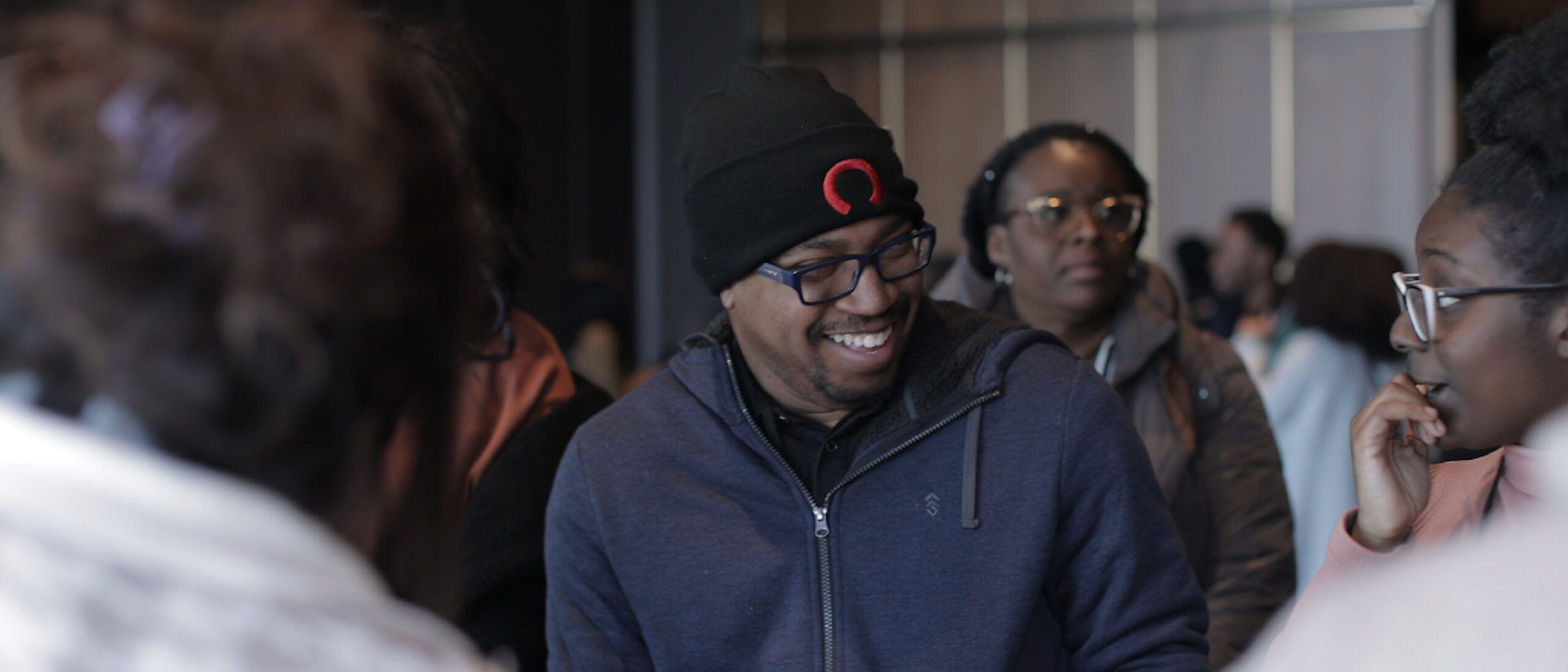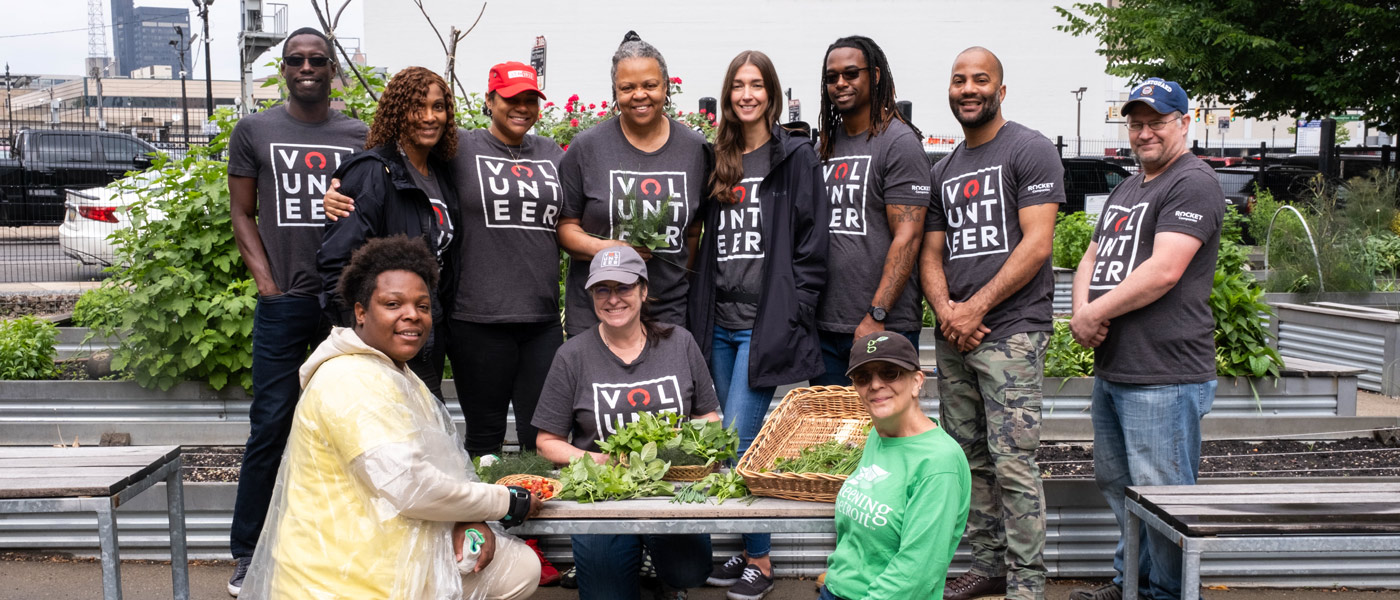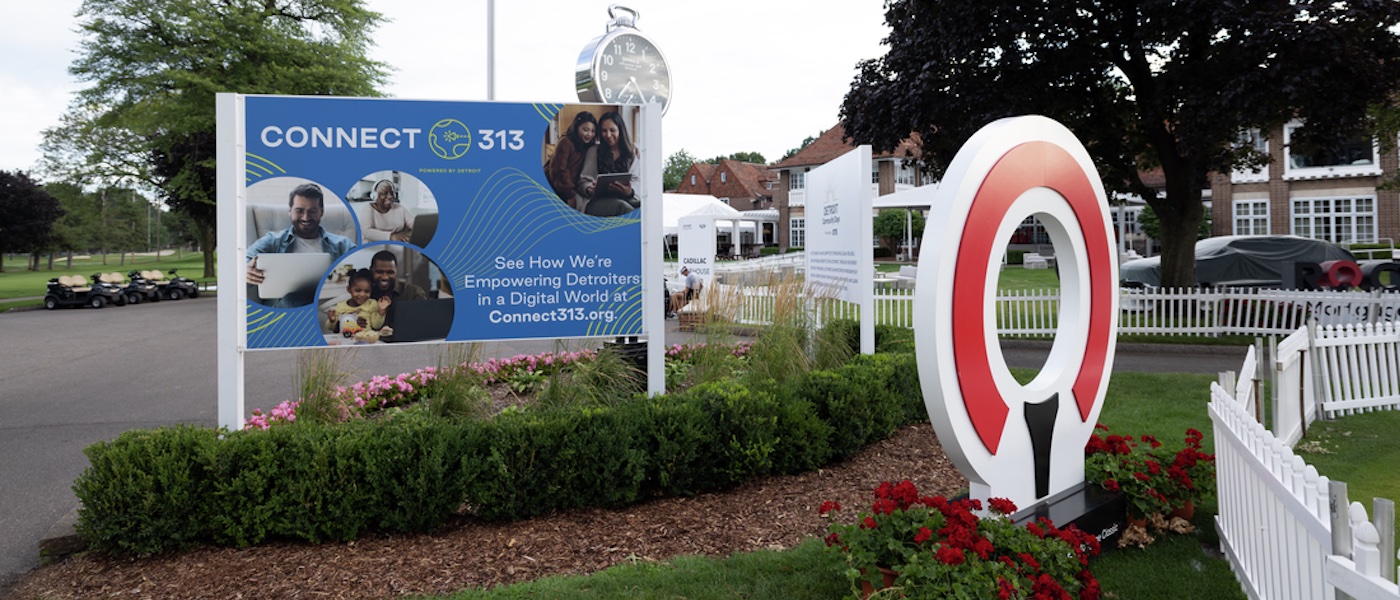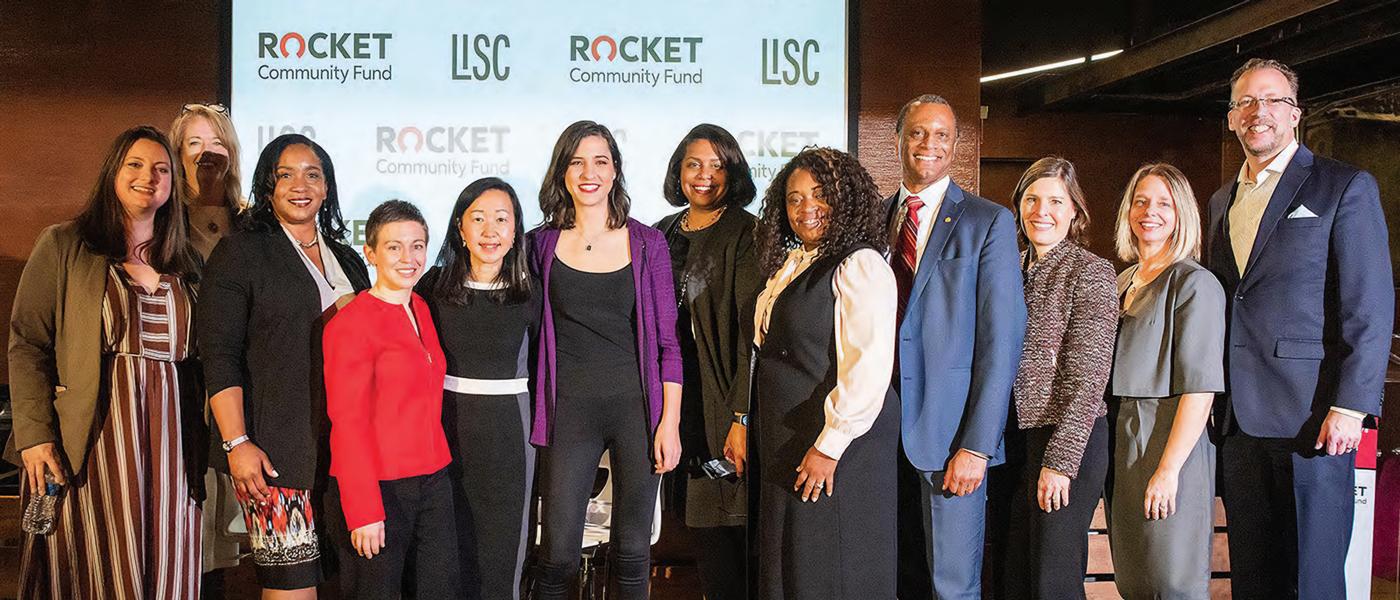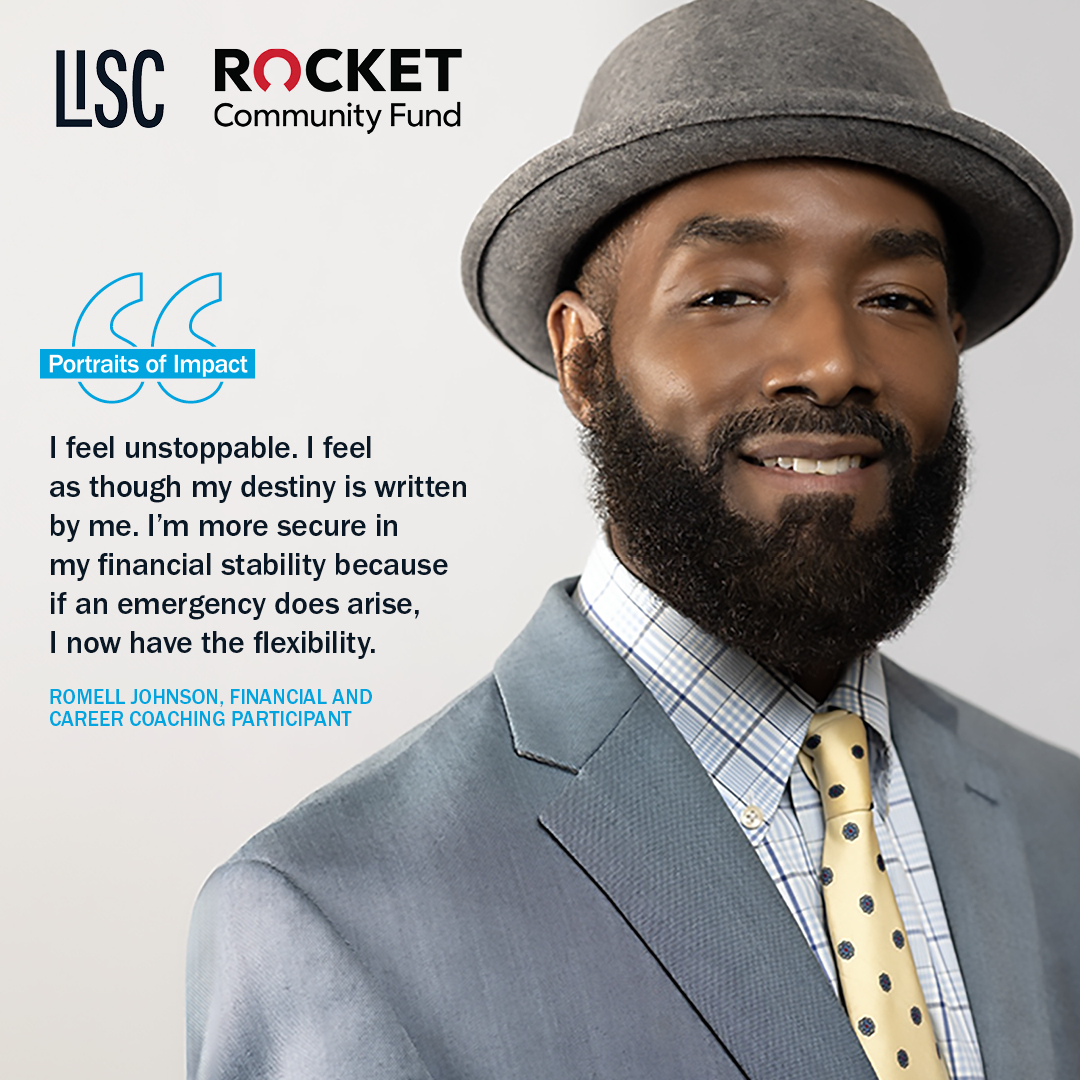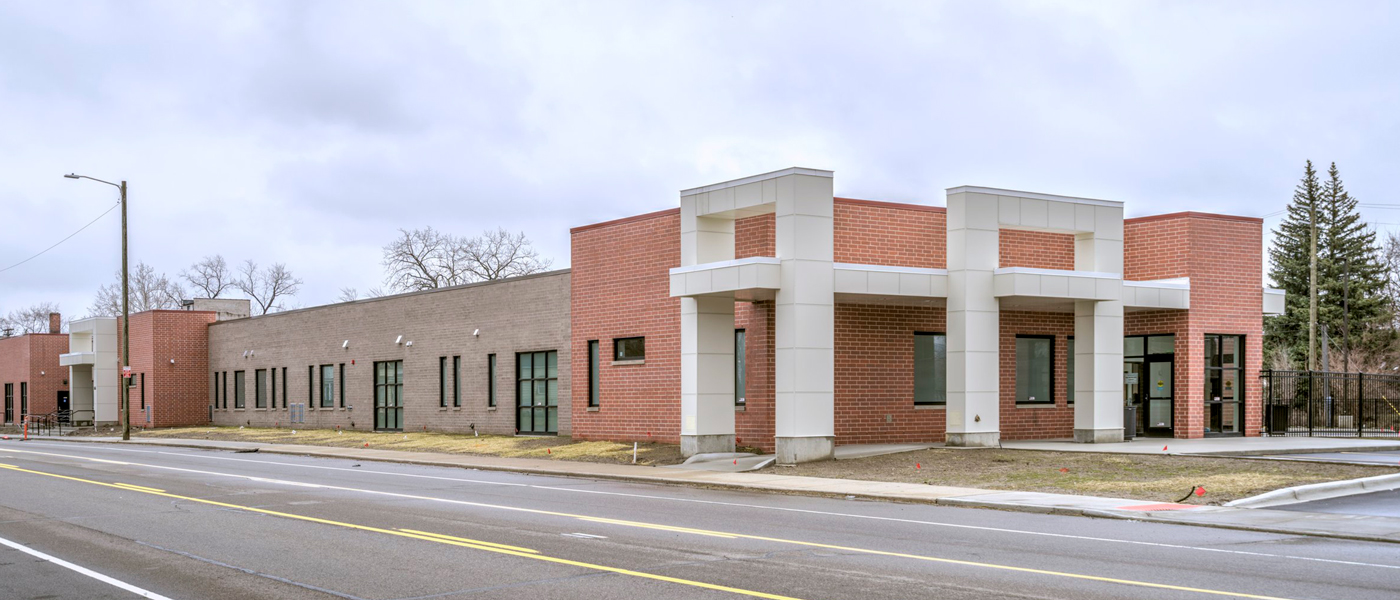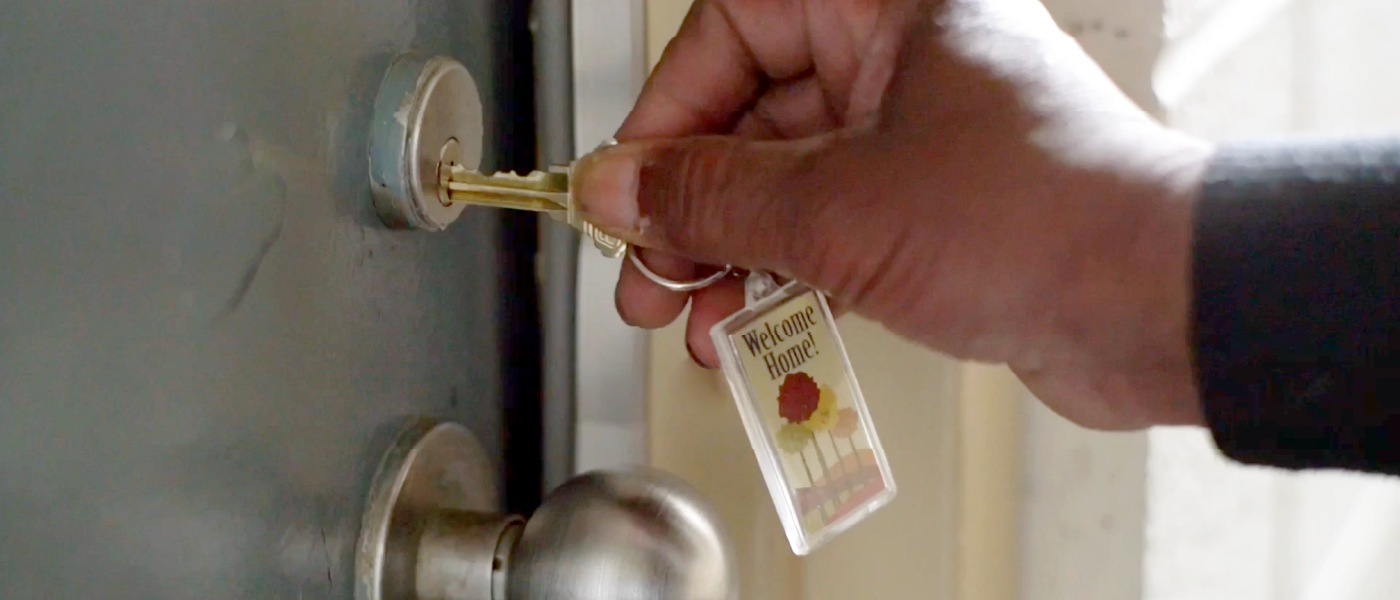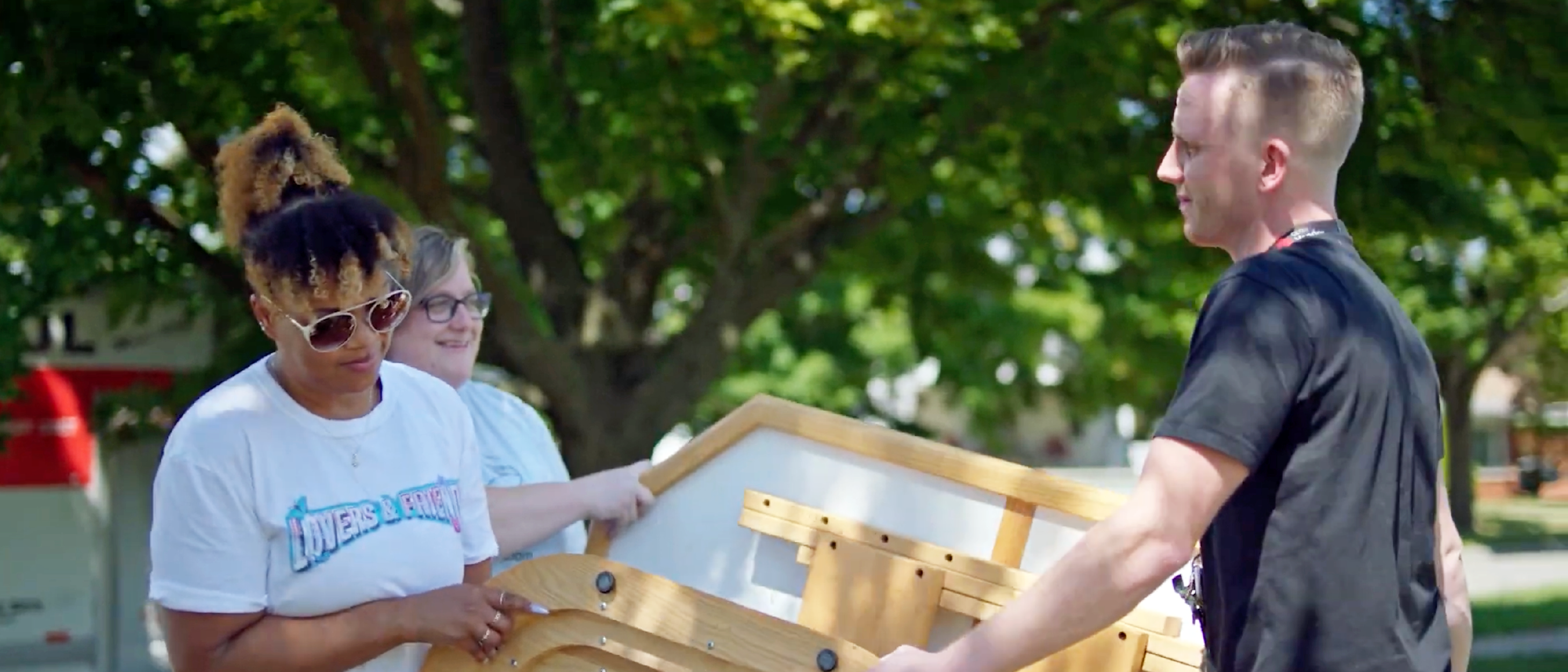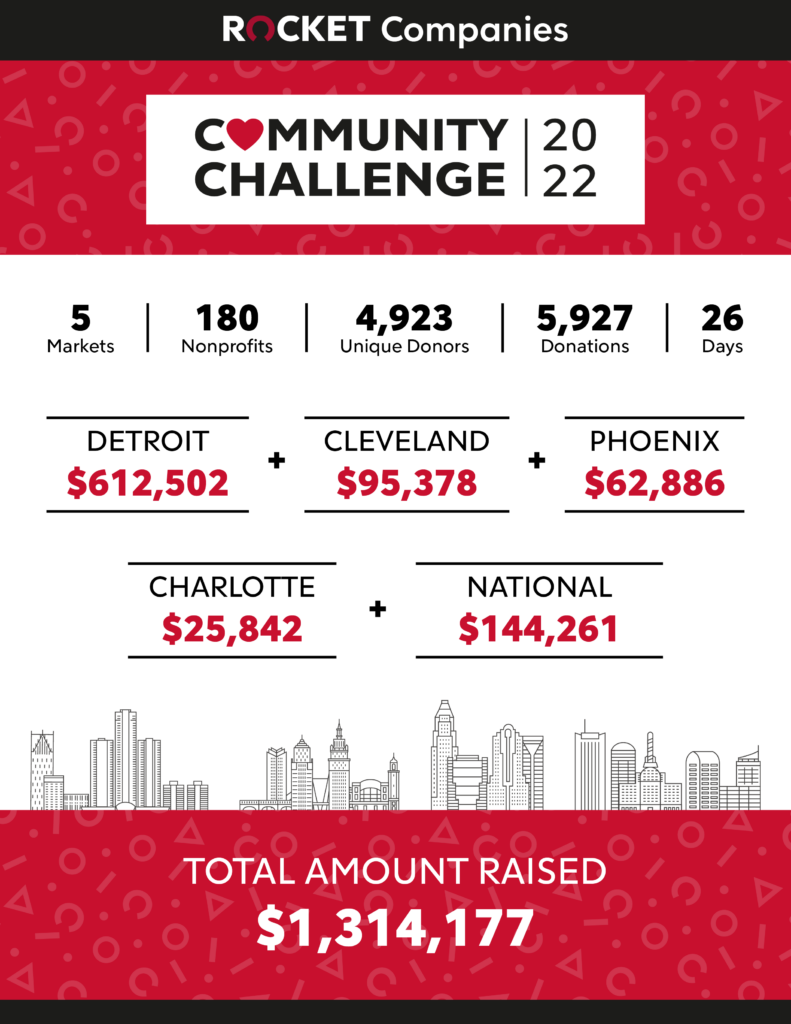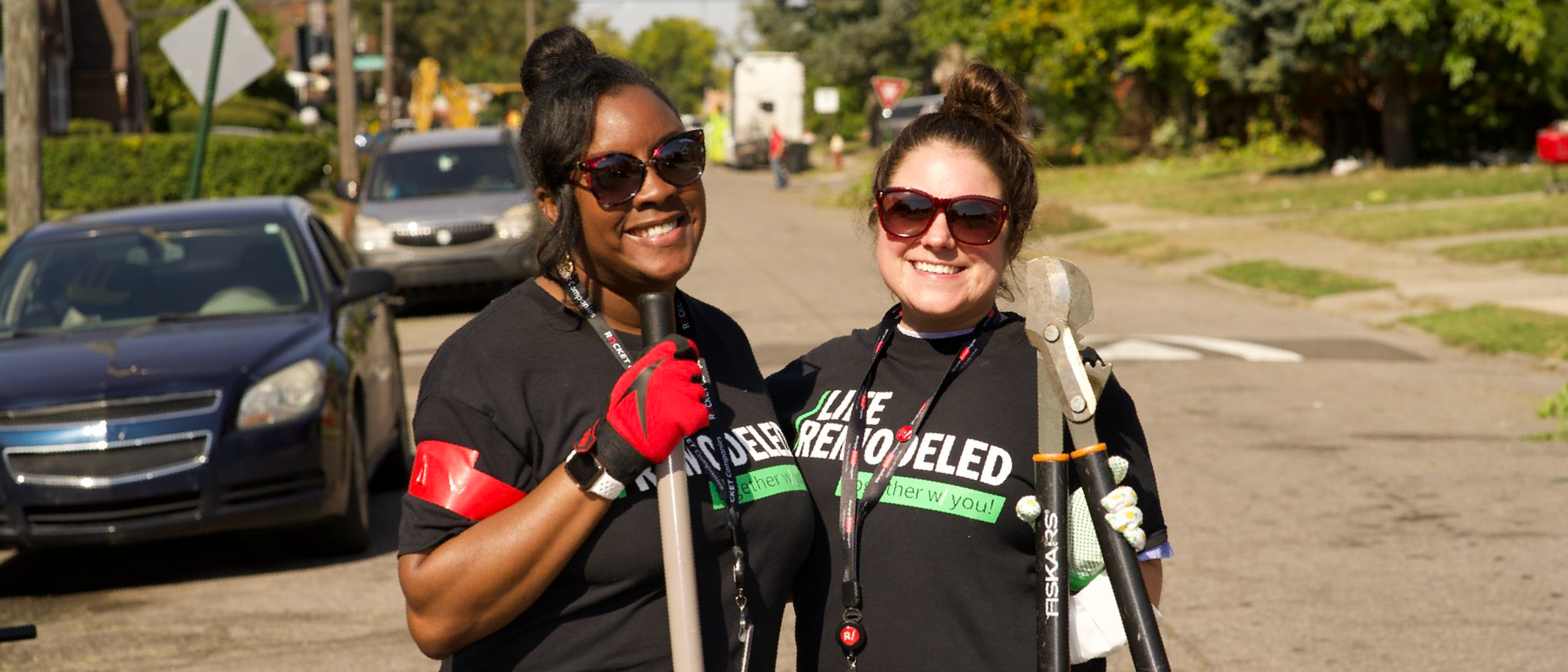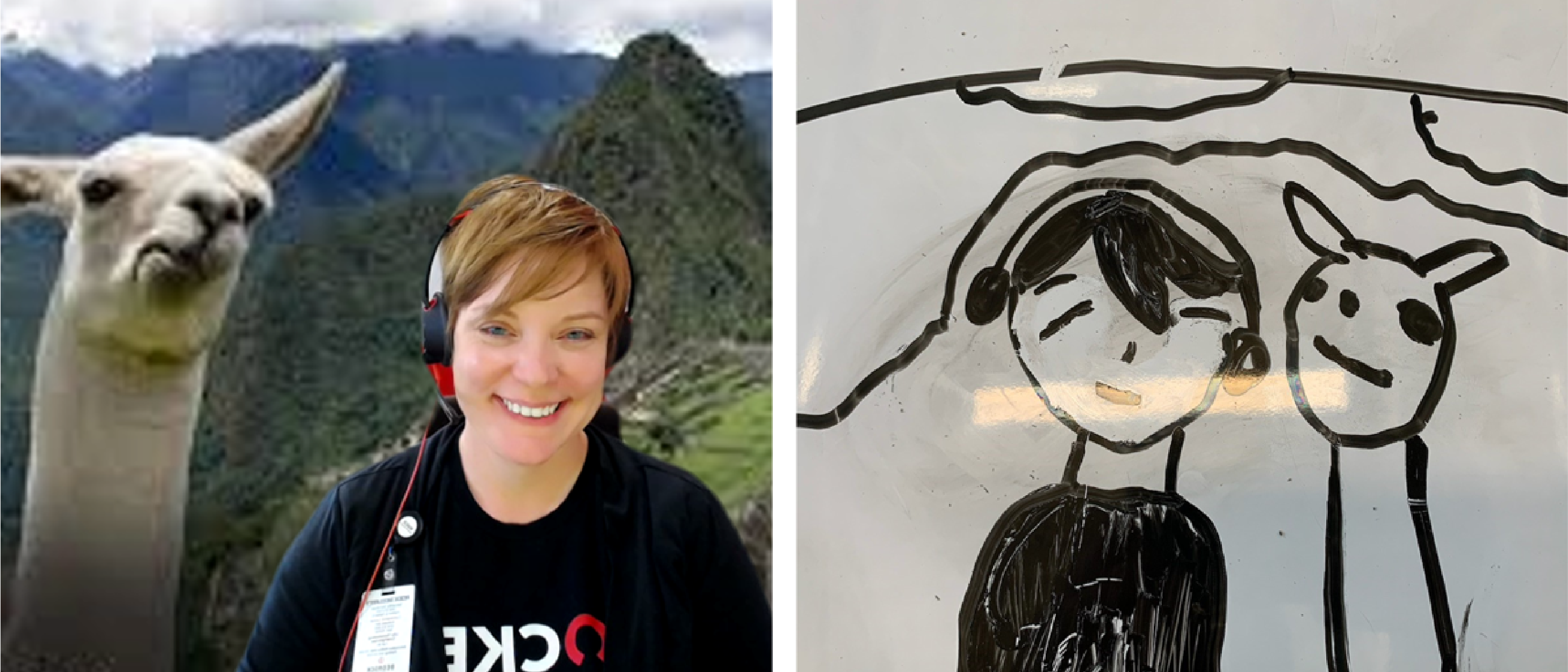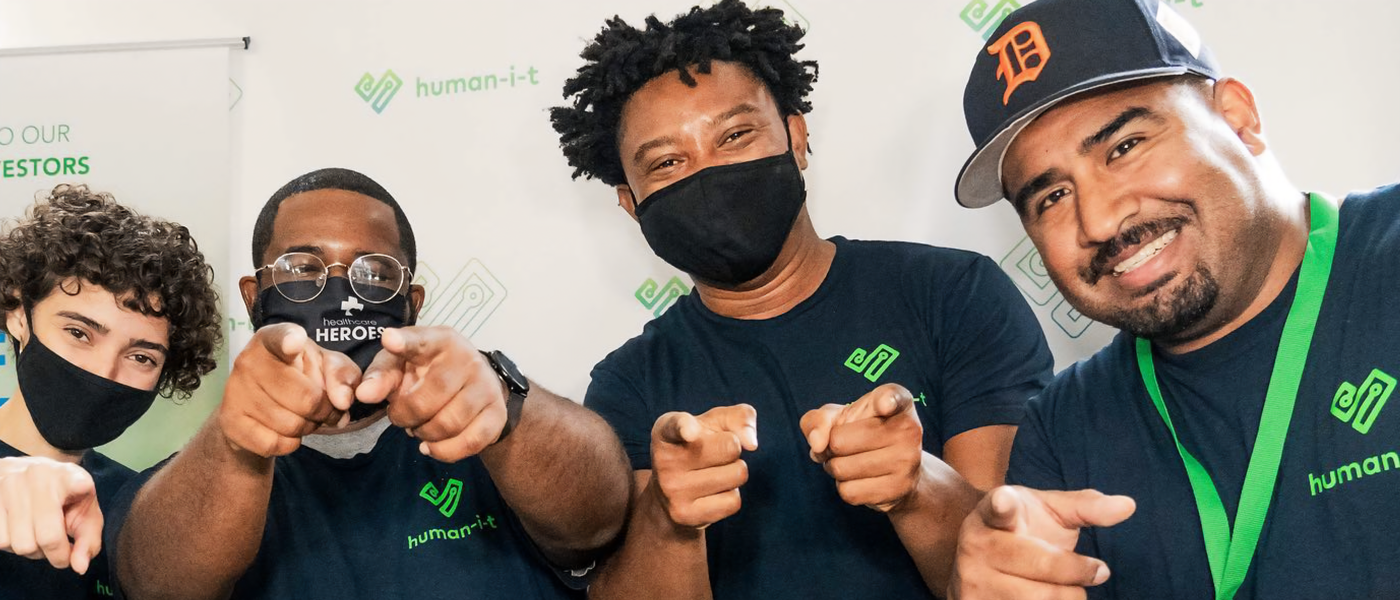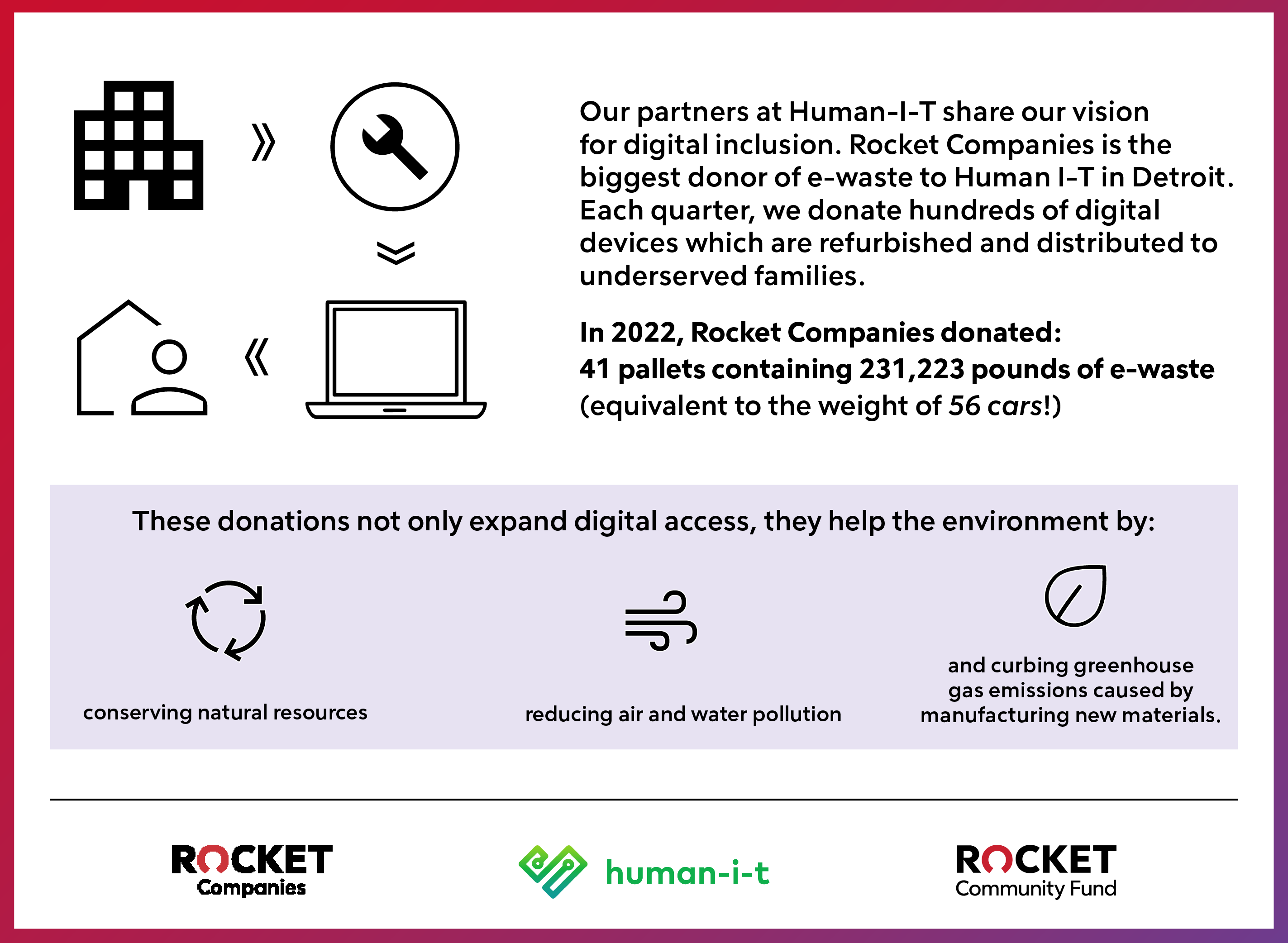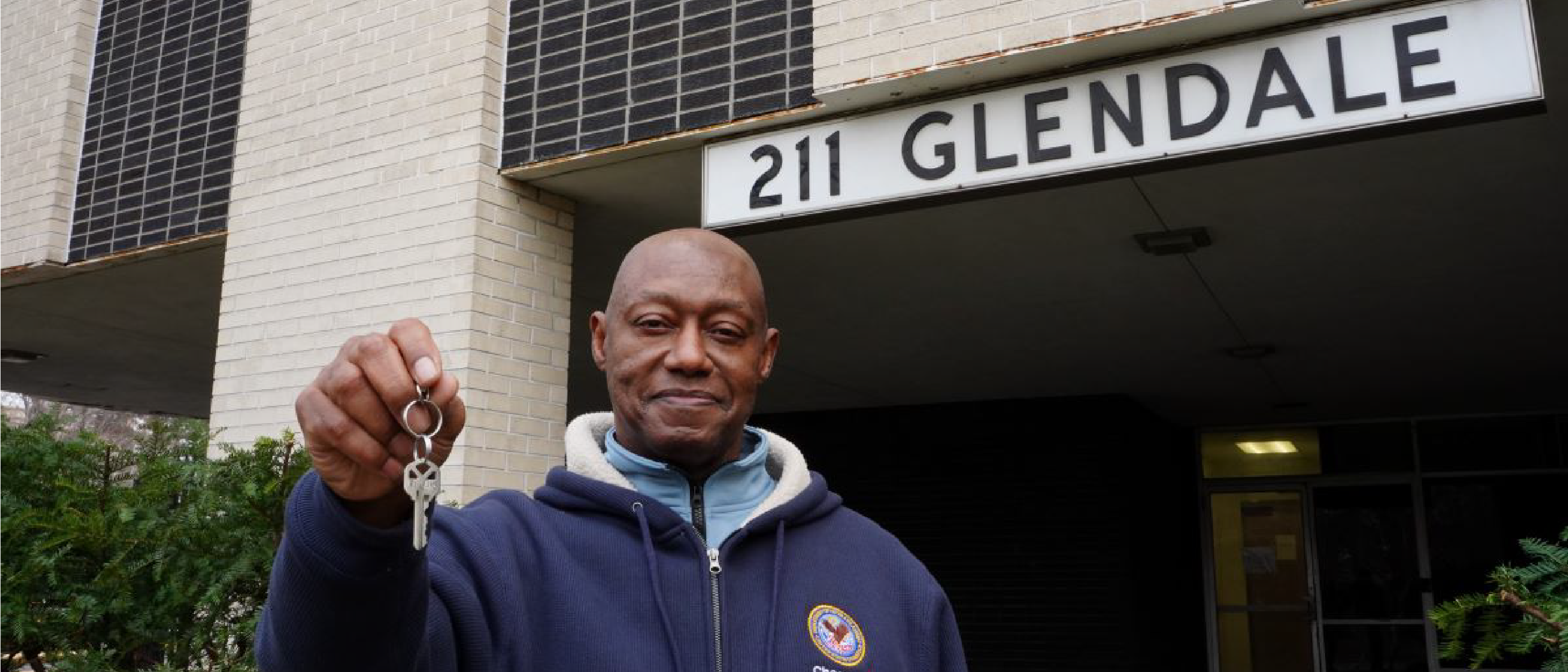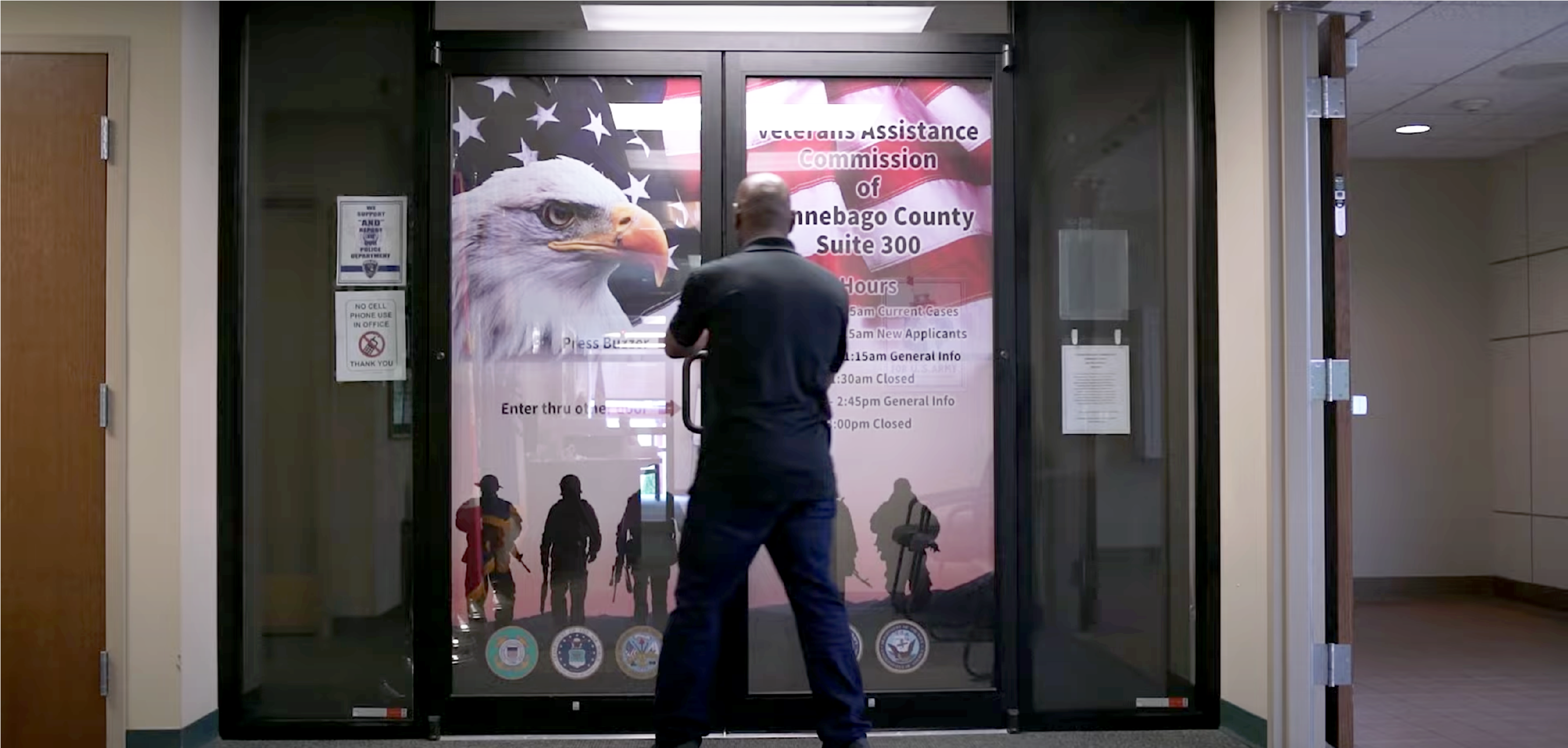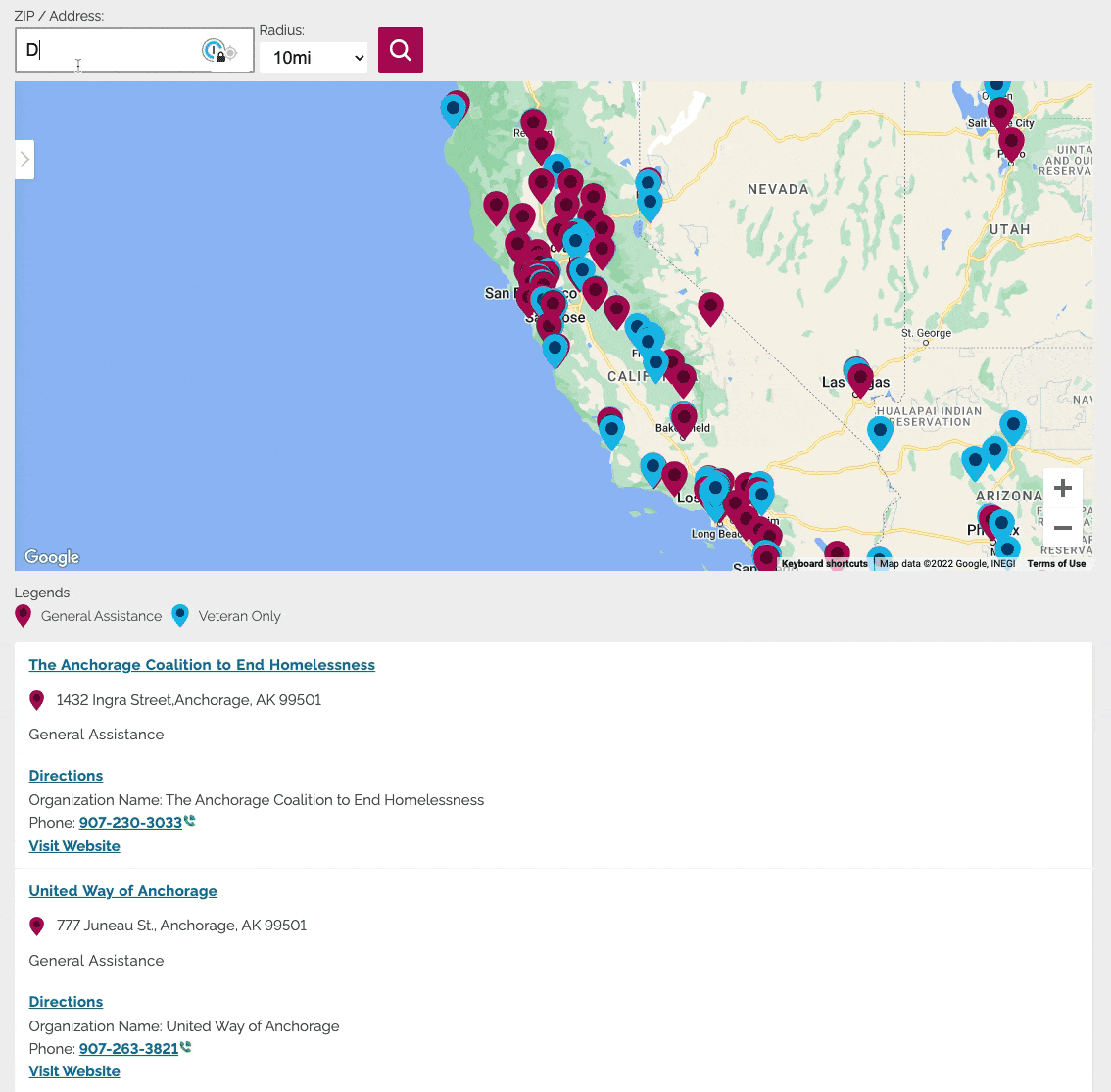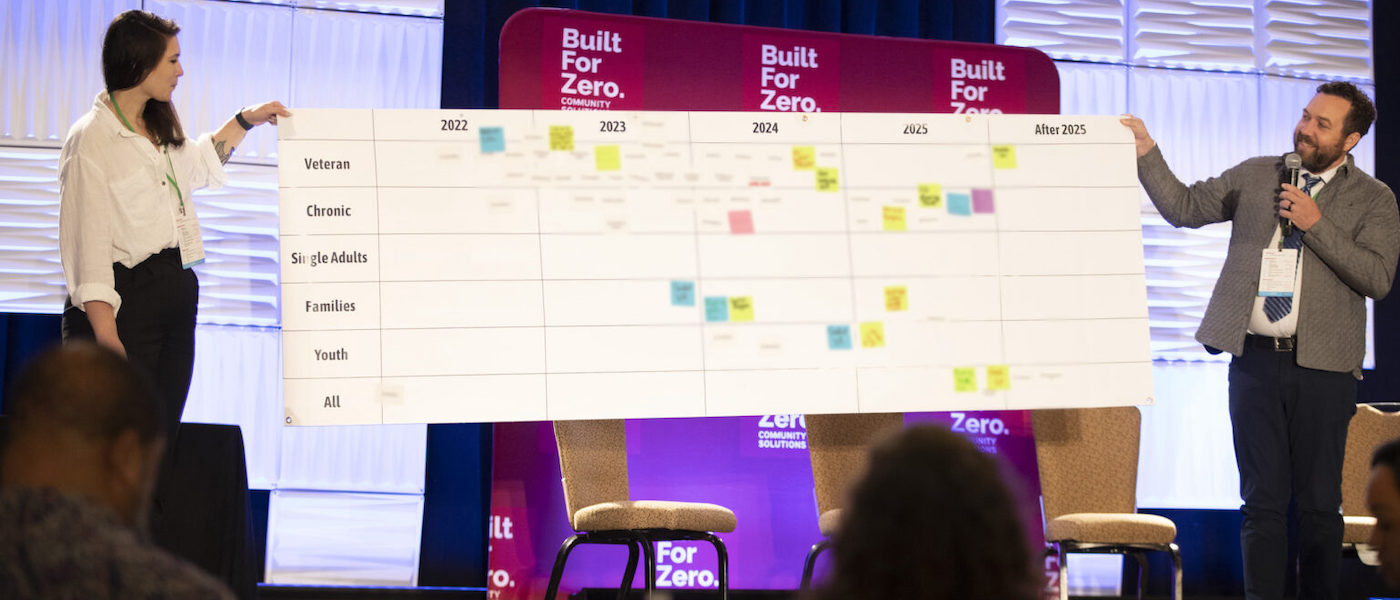“Necessity is the mother of invention,” as the old adage goes. At the Quicken Loans Community Fund, we have had to pivot in reframing many of our program strategies as a result of COVID-19. We’ve been able to rework existing programs and platforms to directly target the unique needs of our community during this pandemic. A prime example of one of our many “program pivots” is the evolution of the Resident Connection Hub (RCH).
A Platform to Support Property Tax Exemption
In 2019, the Quicken Loans Community Fund launched Resident Connection Hub, a phone-based outreach platform developed by our Housing Stability team. The plan was to connect with Detroit residents whom we believed qualified for the city of Detroit’s property tax exemption.
Through our citywide tax foreclosure prevention program, Neighbor to Neighbor, we went door-to-door to provide tax foreclosure prevention resources and collected the phone numbers of more than 8,000 Detroiters. We learned that many of these residents were homeowners who were potentially eligible to receive the tax exemption. It is well-known that this property tax exemption is a very challenging, lengthy process and residents often have difficulty applying for it.
“We knew the best way to help residents get the support they needed was to interact with them directly. The information we collected from going door-to-door illustrated just how difficult it was to reach residents with traditional survey methods,” said Alex Alsup, Director of Housing Stability at the Quicken Loans Community Fund. “That’s why we launched the Resident Connection Hub. We needed to follow up and move those who were eligible for the tax exemption to the next stage in the process.”
Alsup’s team trained other volunteers within the Rock Family of Companies to make follow up calls to the residents. These team members encouraged eligible homeowners to attend Property Tax Exemption (PTE) workshops, where residents could get free assistance applying for the exemption with the help of community partners and Rock FOC team member volunteers.
Pivoting to Support COVID-19 Impact Relief
In March 2020, everything changed. COVID-19 spread to Michigan and Detroit became the epicenter for the virus in the state due to its demographic makeup and high rates of poverty. Just over 80% of Detroit’s 672,000 residents are African-American and other (non-white races) and, sadly, CDC data consistently show that severe illness and death rates tend to be higher for racial and ethnic minority groups during public health emergencies. COVID-19 proved to be no different with evidence suggesting a disproportionate burden of illness and death has fallen upon minority groups.
Alsup’s team knew that the residents they had reached through Neighbor to Neighbor would be especially vulnerable to the impact of the pandemic and that the same information barriers to getting property tax assistance would apply to pandemic resources too.
“We knew it would be really difficult to ensure they were getting all the necessary information regarding COVID-19 prevention and various forms of assistance. Many residents in tax delinquent homes are living poverty, are elderly, and some speak English as a second language or not at all,” explained Alsup. Compounding these factors is another major challenge: Detroit has the lowest rate of internet connectivity in the U.S., something the Quicken Loans Community Fund aims to change.
The Housing Stability team reworked the mission of the Resident Connection Hub platform to address this very pressing need. Adapting information about coronavirus resources published by the City of Detroit online, the RCH was transformed into a COVID-19 resource call center. The team created new call scripts with the contact information and details of the various programs available to Detroit residents during the pandemic, including coronavirus testing, healthcare, unemployment benefits, food assistance, homeowners and renters assistance, the Wayne Metro CARES program and much more.
A Unique Volunteer Opportunity
In order to reach as many Detroit residents as possible, Alsup’s team needed help. They turned to the Quicken Loans Community Fund Volunteer Engagement and Giving team for support. Due to social distancing measures that arose as a result of the pandemic, all in-person volunteer opportunities for Rock FOC team members had been canceled.
The Volunteer Engagement and Giving team subsequently refocused their efforts on providing dozens of virtual volunteer opportunities to team members; among them was the reimagined Resident Connection Hub. Interested team members could sign up for a 30-minute training to learn how to use the platform and understand the resources listed in the script. They then spent two hours calling Detroit residents whose numbers had been collected.
This virtual volunteer opportunity launched in mid-May and is available for team members to volunteer up to four times per month, in two-hour blocks. It gives team members a chance to still make an impact in the Detroit community – from the comfort of their own homes. “This virtual experience with RCH allowed me to take my passion for volunteering and do it in a safe way,” said Jessica Munson, a Quicken Loans volunteer. “I struggled with how to balance working from home, my family, and still help the community – especially during this pandemic. This opportunity allowed me to make a positive impact on the Detroit community during the crisis.”
Munson said that what she enjoyed most about the experience was when she was able make a real connection with a Detroit resident over the phone. Indeed, this is one of the biggest perks of this virtual volunteer opportunity. It’s why the Resident Connection Hub is such a popular volunteer opportunity within the Rock FOC – team members who have a meaningful interaction with a resident are able to experience the tangible impact of their efforts firsthand.
Since the Housing Stability and Volunteer Engagement and Giving teams launched the hub, nearly 80 volunteers have completed 1,203 calls to Detroit residents. And that number continues to grow.
“It’s inspiring to see how our team members have taken to supporting this initiative,” said Alsup. “We hope to continue providing these critical resources to Detroit residents to support them during this difficult time.”
.


